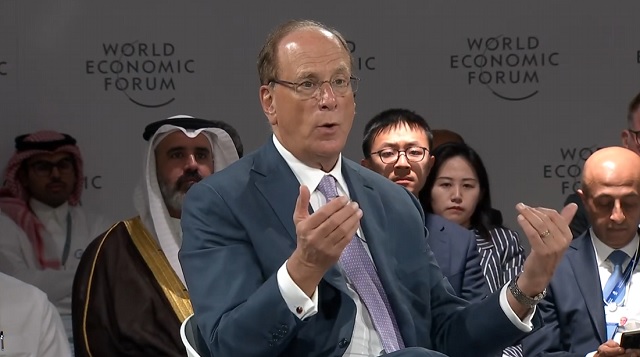6 Reasons Impossible Burger’s CEO is Wrong About GMO Soy
by Sayer Ji, Green Med Info:

Impossible Foods, maker of the fake meat patty, is adding another GMO ingredient: genetically engineered soy. And it wants to convince you it’s because it is trying to ‘save the planet.’
Throughout the U.S., major food brands are trying to get rid of GMO ingredients–not necessarily for the right reasons, but because nearly half of consumers say they avoid them in their food, primarily for health reasons.
But the CEO of Impossible Foods, purveyor of the Impossible Burger, is bucking that trend.
The manufacturers of the controversial veggie burger just announced that in the future, due to “high demand” for the product, its plant-based patties will be made using GMO soy.

The formula change was made to ensure the smooth rollout of the Impossible Burger in Burger King restaurants. The soy formulation is apparently better able to withstand Burger King’s trademark flame grilling. As a result, in early in 2019, Impossible Foods dumped the textured wheat protein it had been using and replaced it with soy protein concentrate instead.
Pat Brown, founder and CEO of Impossible Foods, publicly defended the move. But a closer look reveals that Brown’s claims about the healthfulness and sustainability of “Impossible Burger 2.0” just don’t stack up.
Here are six reasons the CEO of Impossible Burger is wrong when he claims that GMO soy is “the safest and most environmentally responsible option” for scaling up production of the fake meat product–a product that already uses a genetically engineered yeast, called heme, as its key ingredient.
1. Dubious health claims
When the switch to soy was first made. Sue Klapholz, Impossible Foods vice president of nutrition & health, said that “Soy is not only safe; it’s accessible, nutritious.”
That’s not quite true.
Results from studies showing healthful properties of fermented soy products like tofu or miso are sometimes used to support the healthfulness of other, more highly processed types of soy.
But all soy is not created equal.
In the messy world of soy studies, where “soy” can be defined as almost anything with soy in it, there are just as many studies showing no or only marginal benefits, and in some cases, potential for harm–e.g. interference with thyroid medication–from diets high in soy.
Soy protein isolates and concentrates are made from defatted soybean flakes that have been washed in either alcohol or water to remove the sugars and dietary fiber. The flakes are then processed into powders or “flours.”
Alcohol is the most common process, as it produces products with a neutral taste. But the beneficial isoflavones in soy are removed by this method. Soy protein concentrate has the lowest level of healthful isoflavones–including daidzein, genistein and glycitein–of any form of processed soy.
There are other differences between the various types of soy. A 2014 study comparing GMO and organic soy beans found small but statistically significant differences in the nutritional quality: The organic soybeans had slightly higher protein levels and lower levels of omega-6 fatty acids. Omega-3 fatty acids showed no significant difference. Both fats are essential in human diets, but U.S. eaters tend to consume a higher ratio of omega-6 to omega-3 fatty acids than is healthy.
2. Higher use of pesticides
Brown says that “careful analysis” has “conclusively shown” GMO soy is “better for the environment than the alternatives.”
Absolutely untrue. GMO soy, whether fed to cows or people, is bad for the environment.
A 2013 Food & Water Watch study, based on U.S. Department of Agriculture (USDA) and U.S. Environmental Protection Agency data, found that planting GM crops quickly resulted in the growth of herbicide-resistant “superweeds” which caused farmers to increase their herbicide use.
That report echoed the findings of another study produced by Washington State University research professor Charles Benbrook in 2012. In 2016, research from University of Virginia confirmed that glyphosate-resistant weeds have led to a 28-percent hike in herbicide use on GM soybeans compared with non-GM.
This has also been seen in other countries, including Canada, Brazil and Argentina.
There is also evidence that glyphosate, the active ingredient in Monsanto’s Roundup weedkiller, accumulates in GM soy. The same study that found GM soy is nutritionally inferior to organic, and that GM-soy contained high residues of glyphosate and its toxic breakdown product AMPA, while conventional and organic soybeans were free of these agrochemicals.
That may help explain why a recent laboratory analysis by Moms Across America found glyphosate residues in the new formula Impossible Burger. The levels of glyphosate and its toxic breakdown product AMPA were low (11ppb) but as the Moms note, evidence from animal feed studies indicates that just 0.1 ppb of glyphosate can destroy gut bacteria.
Other studies of animals fed GM foods and/or glyphosate show worrying trends, including damage to vital organs like the liver and kidneys, damage to gut tissues and gut flora, immune system disruption, reproductive abnormalities and even tumors.
Agrichemical companies continue to claim that glyphosate is safe. Yet glyphosate is a “probable human carcinogen” according to the World Health Organization (WHO), and its maker Monsanto (Bayer) has recently been ordered to pay out billions in compensation to victims who developed non-Hodgkin lymphoma as a result of using the weedkiller. More cases are pending.
3. No benefits for farmers
According to Brown, the company decided to source “American-grown, milled and processed GM soy” that is “from farms in Iowa, Minnesota and Illinois” because there just isn’t enough non-GMO soy to meet demand.
There is no question that GM soy is more plentiful than non-GM soy in the U.S. In fact, the U.S. grows more soybeans than any other country except Brazil. According to the USDA, more than 90 percent of the soybeans harvested on U.S. farms are genetically engineered to withstand herbicides, especially Roundup.
Loading...



